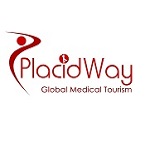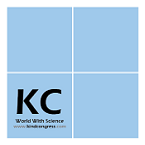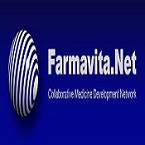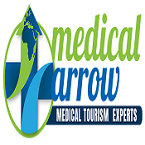About Conference
We Welcome you for 18th World Summit on Alzheimer’s Disease, Dementia Care Research and Awareness which is going to be held on July 31-August 01, 2023 Rome, Italy
The Alzheimer’s disease is currently ranked as the sixth leading cause of death in the United States, but recent estimates indicate that the disorder may rank third, just behind heart disease and cancer, as a cause of death for older people.
Alzheimer’s is the most common cause of dementia among older adults. Dementia is the loss of cognitive functioning—thinking, remembering, and reasoning—and behavioral abilities to such an extent that it interferes with a person’s daily life and activities. Dementia ranges in severity from the mildest stage, when it is just beginning to affect a person’s functioning, to the most severe stage, when the person must depend completely on others for basic activities of daily living.
The causes of dementia can vary, depending on the types of brain changes that may be taking place. Other dementias include Lewy body dementia, frontotemporal disorders, and vascular dementia. It is common for people to have mixed dementia—a combination of two or more types of dementia. For example, some people have both Alzheimer’s disease and vascular dementia.
Alzheimer’s disease is named after Dr. Alois Alzheimer. In 1906, Dr. Alzheimer noticed changes in the brain tissue of a woman who had died of an unusual mental illness. Her symptoms included memory loss, language problems, and unpredictable behavior. After she died, he examined her brain and found many abnormal clumps (now called amyloid plaques) and tangled bundles of fibers (now called neurofibrillary, or tau, tangles).
These plaques and tangles in the brain are still considered some of the main features of Alzheimer’s disease. Another feature is the loss of connections between nerve cells (neurons) in the brain. Neurons transmit messages between different parts of the brain, and from the brain to muscles and organs in the body.
Young Scientist Benefits:
-
Our conferences provide best Platform for your research through oral presentations.
-
Share the ideas with both eminent researchers and mentors.
-
Young Scientist Award reorganization certificate and memento to the winners
-
Young Scientists will get appropriate and timely information by this Forum.
-
Platform for collaboration among young researchers for better development.
-
Award should motivate participants to strive to realize their full potential which could in turn be beneficial to the field as whole.
Session / Tracks
Session on Alzheimer’s Disease Causes, Diagnosis and Prevention
Alzheimer's can be defined as a gradually progressive neurodegenerative disease characterized of memory impairment and subsequent disturbances in personality, mood, reasoning and perception. It caused by a combination of lifestyle, genetic, and environmental factors that gradually impairs the brain.
It can be diagnosed by evaluating subject’s medical history, testing mental and mood status (NINCDS-ADRDA), lab tests and brain scans. An ongoing clinical trial conducted by Dominantly Inherited Alzheimer Network (DIAN), is to test whether antibodies to beta-amyloid can reduce the accumulation of beta-amyloid plaque in the brains with such genetic mutations and thereby reduce, delay or prevent symptoms and it can also be impeded by choosing the diet carefully.
Session on Alzheimer’s disease Pathogenesis and mechanisms
Beta amyloid plaques and Neurofibrillary tangles of tau protein Pathology are prime suspects of neuronal cell death in Alzheimer’s it caused by accumulation of abnormally folded A-beta and tau proteins and Plaques of small peptides 39–43 amino acids to form Beta-amyloid which comprises amyloid precursor protein (APP) and a transmembrane protein that pierce the neuron's membrane. It later forms a fibrils of amyloid protein clump which get deposited in neurons to form a dense senile plaques, amyloid fibrils disrupts the cell’s calcium ions homeostasis and induces apoptosis of neurons which results in neurodegeneration affecting brain functioning.
Session on Clinical Trials on Alzheimer’s disease
More than 400 clinical trials are presently looking at new treatments for Alzheimer’s disease (AD) and many of them are actively recruiting. Many of the researches are based on decreasing the toxic effects of amyloid-beta in the brain, targeting amyloid production, blocking the accumulation of amyloid-beta into plaques, Aiming at Tau, Improving Cognition with Serotonin and Dietary Supplements.
Session on Vascular dementia
Vascular dementia is the wider term for dementia associated with brain damage from impaired blood flow to the brain. The various types of dementia are Single-infarct, Multi-infarct dementia, Subcortical vascular dementia (Binswanger's disease), and Mixed dementia. Its clinical symptoms are Problems with planning or organising, concentrating, including short periods of sudden confusion and Memory, language and visuospatial skills also get affected.
Anyone can be affected by Vascular dementia, but several factors increase the risk. These include: High blood pressure, Smoking, Diabetes, High cholesterol, History of mild warning strokes, Evidence of disease in arteries elsewhere and Heart rhythm abnormalities, while no remedy can reverse the damage that has already been occurred, treatment to prevent extra strokes may be very essential.
Session on Ageing and Gerontology
Gerontology is scientific study of aging process and concerned with physical, mental, and social aspects and implications of aging. The field of gerontology is actually quite broader, containing many professionals who focus on different aspects of aging and development.
Gerontologists include practitioners and researchers in the areas fields of nursing, medicine, criminology, biology, social work, physical and occupational therapy, psychology, sociology, psychiatry, dentistry, economics, political science, architecture, geography, pharmacy, public health, housing, and anthropology. There are several theories of aging but none has been accepted.
Session on Geriatrics Care Practice and Awareness Neuroscience
Geriatric health care practice also known as "elder care health management, it is a process of planning and coordinating care of the old aged individuals and others with physical and/or mental abilities to meet their long term care needs, enhance their quality of life, and carried their independence for as long as possible. It involves in working with persons of old age and their families in managing, rendering and furnishing various types of health and social care services.
Awareness is attention plus working memory, and Awareness has a quite specific definition, Neural systems that controls and regulate to attenuate awareness in humans whose central and peripheral nervous system provides more instructions than cognitive sites in the brain can assimilate.
Session on Cognitive Neuroscience and Artificial Intelligence
Cognitive neuroscience is scientific study of neural mechanisms which connects cognitive psychology, neurobiology, neurology, mathematics, physics, linguistics, philosophy and computer science, as well as artificial intelligence, which includes psychophysical experiments, electrophysiological studies of neural systems, functional neuroimaging, and increasingly cognitive genomics and behavioural genetics.Artificial Intelligence (AI) entails the study of cognitive phenomena in machines one of the realistic desires of artificial intelligence is to put aspects of human intelligence in computer systems.
Session on Neurodegeneration and Genetics
Neurodegeneration marked by gradual loss of neuronal structure and its functions, including death of neurons, The most common neurodegenerative diseases are Alzheimer’s disease and Parkinson’s disease. Degenerative nerve diseases have an effect on many of your body's activities, which includes balance, movement, talking, respiration, and coronary heart function, many of these diseases are genetic, sometimes the reason is a scientific condition which include alcoholism, a tumour, or a stroke, other reasons can also include pollution, chemicals, and viruses, sometimes the purpose is not known. Degenerative nerve diseases include Alzheimer's disease, Amyotrophic lateral sclerosis, Friedreich's ataxia, Huntington's disease, Lewy body disease, Parkinson's disease and Spinal muscular atrophy.
Session on Memory Disorders
Memory Disorders is a collective term marked by damage or injury of neuroanatomical structures that affects the storage, retention and memory recall process of brain, The major causes for memory impairment are Brain strokes, High blood pressure, Medications, Diabetes, Brain trauma or head injury and nutritional deficiencies.
A various types of diseases in which memory storage get halted are Alzheimer's Disease, Corticobasal Degeneration, Creutzfeldt-Jakob Disease, Frontotemporal Dementia, Huntington's Disease, Lewy Body Dementia, Mild Cognitive Impairment, Progressive Supranuclear Palsy and Vascular Dementia.
Session on Neuro-immunology
Neuro-immunology is a vast branch of science that combines the nervous system and immune system together. This field assist in regulating thermogenesis, behavior, sleep, and mood which can be tormented by pro-inflammatory cytokines released by means of activated macrophages and monocytes throughout infection. Neuroinflammation and neuroimmune activation were shown to play a role in the aetiology of a variety of neurological problems which includes stroke, Parkinson's and Alzheimer's disease, multiple sclerosis,https://alzheimers.global-summit.com/ pain, and AIDS-related dementia, however cytokines and chemokines also modulate CNS function in the absence of overt immunological, physiological, or mental challenges.
Session on Movement disorders
Movement disorders refers to a group of nervous system characterized of movement disorders are clinical syndromes with both an excess of motion or a paucity of voluntary and involuntary actions. Individuals with a motion disorder suffer from a breakdown in the normal flow of neurological messages and this result in involuntary muscle motion. Common types of movement disorders are Ataxia, Cervical dystonia, Chorea, Dystonia, Functional movement disorder, Multiple system atrophy, Myoclonus, Progressive supranuclear palsy, Restless legs syndrome, Tardive dyskinesia, Tourette syndrome, Tremor and Wilson's disease.
Session on Nursing Interventions
Health nursing is a well experienced and qualified nurse in mental health that cares for people of all ages with mental conditions like schizophrenia, psychosis, bipolar disorder, depression, anxiety, dementia, and many more. Mental health nurses, especially CPNs, are involved in counselling, which can range from casual chats through to based, one-to-one psychotherapy sessions.
The major duty of a psychiatric nurse is to maintain a healthy and positive therapeutic relationship with patients and direct communication is necessary for developing it.
Session on Dementia Care Practice and Research
Dementia is a chronic condition of the mental health caused by brain disease or injury marked by memory inabilities, personality impairments, and impaired reasoning. Dementia care practice is a process optimizing patient’s quality of life, functional independence, health, and wellbeing, all of whom may additionally struggle physically, emotionally, and financially from their diverse relationships to the sickness.
Session on Neurology Palliative Care
The importance of palliative care extends far past ‘end-of-lifestyles treatment for most cancers sufferers, There are some of crucial regions for palliative care exactly in neurology and a regularly developing call for it – now not least because of ever higher lifestyles expectancy charges worldwide.
Example of patients with glioblastoma with this progressive disorder, the need for palliative care constantly will increase. It’s far tough to mention for sure the factor in time at which palliative care need so be initiated, experience shows that factors of palliative medicinal drug are employed and primarily, organized early on in the path of the disorder, even at some point of oncological treatment.
Session on Neuro stroke
A stroke or cerebrovascular accident is the unexpectedly growing loss of brain functions because of disturbance in the blood supply to the brain, caused by a blocked or burst blood vessel. In emergency conditions neurological damage get worsened which may results in bleeding (haemorrhagic strokes) and death. The strokes like ischemic stroke, thrombotic stroke, haemorrhagic stroke, intracerebral haemorrhage and subarachnoid haemorrhage are the various types of neuro strokes.
Symptoms includes sudden onset of numbness, weakness, confusion, difficulty speaking, vision loss, dizziness, imbalance and severe headache. It can be prevented by monitoring diet, regulating blood pressure and diabetes levels, physical work out and quitting smoking.
Session on Mood disorders
Mood disorders are a set of illnesses that presents a serious change in mood. The major categories are Depression and Bipolar disorders. The subject may experience euphoric, mania, hyperactive, over inflated ego, persistent depressive disorder and seasonal depressive disorders. The Psychiatric Disorders and Mood Disorders is interlinked in its nature it means that the subject with psychiatric disorders has a chance of developing Depression. The other mood disorders are Cyclothymic disorder, premenstrual dysphoric disorder, Persistent depressive disorder (dysthymia), Disruptive mood dysregulation disorder and Depression induced by substance use or medication.
Market Analysis
Alzheimer’s Drugs Market by Drug Class (Cholinergic, Memantine, and Combined Drug) and by Distribution Channel (Hospital Pharmacy, Retail Pharmacy, and Online Sales): Global Industry Perspective, Comprehensive Analysis, and Forecast, 2017 - 2024”. According to the report, global Alzheimer’s Drugs Market was valued at approximately USD 3.64 billion in 2017 and is expected to generate revenue of around USD 5.66 billion by end of 2024, growing at a CAGR of around 8% between 2018 and 2024.
Alzheimer’s is a neurodegenerative progressive disease. Alzheimer's disease is a type of dementia which includes a broad group of brain diseases, such as problems with memory, thinking, and behavior for the long term. It is a type of dementia and near about 60-70% of Alzheimer's disease is the cause of dementia. Many researchers consider an increase in the level of protein amyloid in the brain is one of the causes of Alzheimer disease. Older age is the prominent cause of Alzheimer's, whereas there are also some genetic and some other causes of Alzheimer diseases. The exact cause of Alzheimer’s disease is still unknown.
Browse through 90 Tables & 12 Figures spread over 110 Pages and in-depth TOC on “Global Alzheimer’s Drugs Market Size & Share 2017: Industry Type, Growth, Segments Analysis and Forecast 2024”.
The global Alzheimer’s market is mainly driven by the growing occurrence of diseases in developed countries specifically in the Western region. Additionally, the prevalence of some neurodegenerative diseases such as dementia, growing occurrence of diseases, firm government encouragement for Alzheimer’s drug development, and growing alertness about the treatment of Alzheimer’s disease is resulting into increased demand for Alzheimer’s drugs market. However, high prices of the advance drugs may create restraints in underdeveloped countries. Also, awareness about Alzheimer’s disease in the developing regions remains restricted, which has resulted in unbalanced healthcare systems and obstructive research infrastructure. In Asia Pacific region, growing encouragement for mental care by governments is anticipated to drive the Alzheimer’s drugs market in the near future.
The report covers forecast and analysis for the Alzheimer’s drugs market on a global and regional level. The study provides historical data from 2015 along with a forecast from 2018 to 2024 based on revenue (USD Billion). The study includes drivers and restraints for the Alzheimer’s drugs market along with the impact they have on the demand over the forecast period. Additionally, the report includes the study of opportunities available in the Alzheimer’s drugs market on a global level.
In order to give the users of this report a comprehensive view on the Alzheimer’s drugs market, we have included competitive landscape and analysis of Porter’s Five Forces model for the market. The study encompasses drug class, distribution channel, and regional segmentation are benchmarked based on their market size, growth rate, and general attractiveness.
The report provides company market share analysis in order to give a broader overview of the key players in the market. In addition, the report also covers key strategic developments of the market including acquisitions & mergers, new product launch, agreements, partnerships, collaborations & joint ventures, research & development, regional expansion of major participants involved in the market on the global and regional basis.
This report segments the global Alzheimer’s drugs market as follows:
Global Alzheimer’s Drugs: by Drug Class
Cholinergic
Memantine
Combined Drug
Global Alzheimer’s Drugs: by Distribution Channel
Hospital Pharmacy
Retail Pharmacy
Online Sales
Global Alzheimer’s Drugs: by Region
North America
Europe
UK
France
Germany
Asia Pacific
China
Japan
India
Latin America
Brazil
The Middle East and Africa.
Past conference report
17th World Summit on Alzheimer’s disease, Dementia Care Research and Awareness was organized during August 10-11, 2022, Webinar. The conference was marked with the attendance of Editorial Board Members of supporting journals, Scientists, young and brilliant researchers, business delegates and talented student communities, who made this conference fruitful and productive.
This conference included the following scientific tracks:
-
Alzheimer’s disease Causes, Diagnosis and Prevention
-
Alzheimer’s disease Pathogenesis and mechanisms
-
Vascular dementia
-
Ageing and Gerontology
-
Geriatrics Care Practice and Awareness Neuroscience
-
Cognitive Neuroscience and Artificial Intelligence
-
Neurodegeneration and Genetics
-
Memory Disorders
-
Neuro-immunology
-
Movement disorders
-
Nursing Interventions
-
Dementia Care Practice and Research
-
Neurology Palliative Care
-
Neuro stroke
-
Mood disorders
Conference Series LLC Ltd has taken the privilege of felicitating Alzheimer’s 2022 Organizing Committee, Editorial Board Members and Keynote Speakers who supported for the success of this conference.
The esteemed guests, keynote speakers and researchers shared their innovative research and vast experience through their informative presentations at the podium of Alzheimer’s 2022 Your response is our motivation; remembering this maxim and being seen the victory of Alzheimer’s 2022 , conference series LLC LTD is glad to announce the next meeting. Mark your calendars for the upcoming conference, “18th World Summit on Alzheimer’s Disease, Dementia Care Research and Awareness"(Alzheimer’s 2023) which is scheduled during July 31-August 01, 2023 Rome, Italy
Meet us again @ Alzheimer’s 2023








